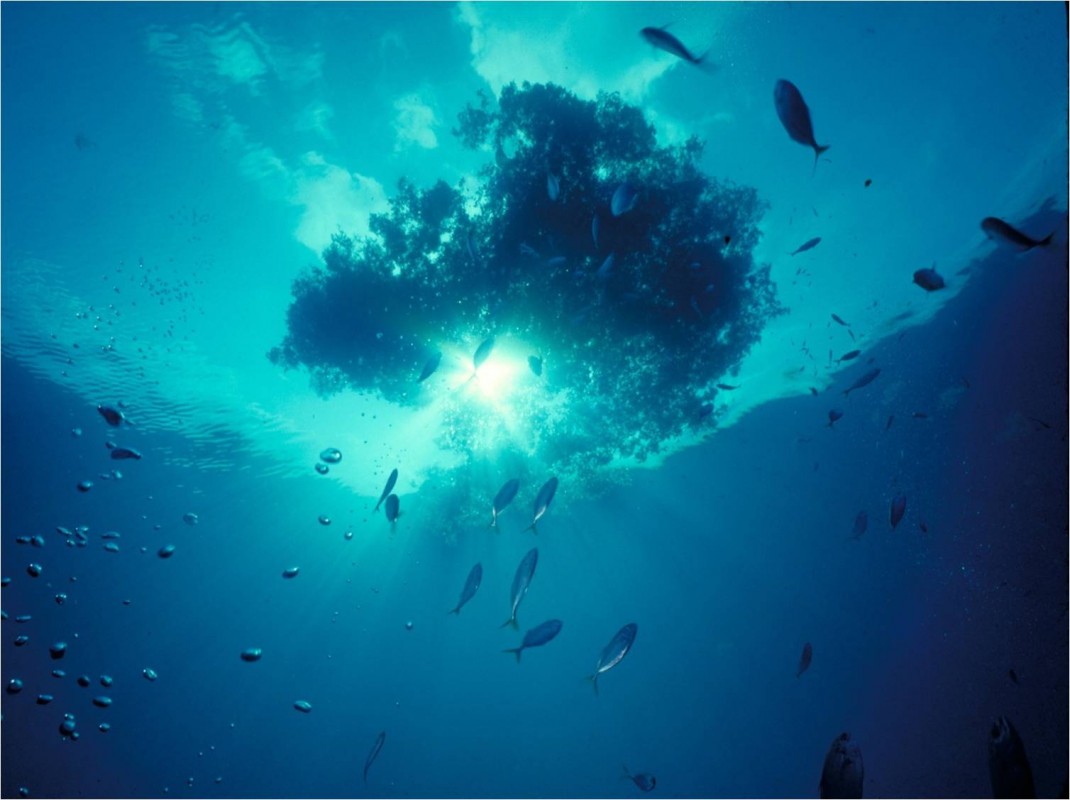Governments Unite to Conserve Iconic Sargasso Sea

Governments of Bermuda, the Azores, Monaco, United Kingdom and the United States have signed a declaration committing to the conservation of the Sargasso Sea – a vast patch of mid-Atlantic Ocean known for its unique floating seaweeds that harbour rich biodiversity. This is the first time an international alliance has been formed to protect this unique haven of marine life.
The agreement, which was signed yesterday in Bermuda’s capital Hamilton, is part of the Sargasso Sea Alliance – an initiative led by the Government of Bermuda and hosted by IUCN (International Union for Conservation of Nature), which is one of its founding partners.
The ‘Hamilton Declaration on Collaboration for the Conservation of the Sargasso Sea’ – also known as the ‘Hamilton Declaration’ – is a non-binding political statement. It seeks protection for the Sargasso Sea using international bodies that regulate areas beyond national jurisdiction, such as the International Maritime Organization, regional fisheries authorities and the Convention on Migratory Species.
“This is a truly historic occasion,” says David Freestone, Executive Director of the Sargasso Sea Alliance. “It is the first time an international alliance has been formed to protect an iconic high seas ecosystem, using existing legal international frameworks.”
The Sargasso Sea serves as an ecological crossroad in the Atlantic Ocean. Its floating Sargassum seaweeds shelter a wide variety of species. Some of them, like the Sargassum anglerfish, are unique to the area. Some 30 species of whales, dolphins and porpoises breed, live in or migrate through the Sargasso Sea, as do species of tuna, turtles, sharks, rays and the European and American eels.
The area faces numerous threats which undermine its long-term viability and health. These include wastewater discharge from ships, pollution, fishing, harvesting of Sargassum algae for fertilizer and biofuel production, seabed mining, climate change and ocean acidification.
“The more we explore the vast blue open ocean, the more we realize that it has some spectacular havens for wildlife just like those we value on land,” says Dan Laffoley, Marine Vice Chair of the IUCN World Commission on Protected Areas. “Unlike on land, however, we do not have proper legal mechanisms to safeguard these precious places.”
Unlike the Mediterranean, the Northeast Atlantic or Southern Ocean, the Sargasso Sea lacks a regional organization responsible for its conservation. The Hamilton Declaration will provide a platform for the creation of a Sargasso Sea Commission, whose aim will be to minimize the adverse effects of shipping and fishing in the area, keeping its health, productivity and resilience under review.
Government representatives from Sweden, Turks and Caicos Islands, British Virgin Islands, the Netherlands, Bahamas and South Africa expressed support for the declaration, together with five international organizations including IUCN, the Oslo and Paris Commission from the neighboring North-east Atlantic regions, the International Seabed Authority, the Inter-American Convention for the Conservation of Atlantic Sea Turtles and the Convention on Migratory Species.
“The Hamilton Declaration represents a rare oasis of joint voluntary action to protect this high seas gem,” says Kristina Gjerde, IUCN Senior High Seas Policy Advisor. “Strong leadership in protecting and managing the Sargasso Sea should send an important message to the international community that now is the time to come together to protect wildlife throughout our global ocean commons.”
Commitments like this one are a key part of global efforts to meet the target of conserving 10% of the ocean by 2020, up from almost 3% we have today. Progress towards this target will be discussed at the IUCN World Parks Congress taking place in Sydney from 12 to 19 November 2014.
Project AWARE is an International Non-government Organization member of IUCN, the world’s oldest and largest global environmental network. IUCN, home of the Red List of Threatened Species, is a democratic membership union with more than 1,000 government and NGO member organizations, and almost 11,000 volunteer scientists in more than 160 countries.
Visit the IUCN website for the full press release, photos and other related materials.
Photo: Sargassum Habitat by Don Kincaid



